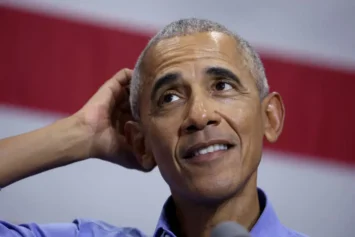Travel industry professionals are accusing the Obama administration of caving in to Cuban Americans and dramatically altering the administration’s much-touted “people-to-people” travel program between the U.S. and Cuba.
The travel program has changed because of tighter regulations issued by the administration in May, resulting in tour operators not having their licenses renewed and many of them possibly having to go out of business, according to a story by Reuters.
The program began last year to allow educational and cultural travel to Cuba as part of the administration’s policy of “constructive engagement.” Travel operators, who must have their licenses renewed annually to bring groups to Cuba, have thus far brought an estimated 50,000 Americans down to the Caribbean island just 90 miles south of Florida. But since the rule changes in May, tour operators are finding that the Treasury Department’s Office of Foreign Assets Control are no longer renewing their licenses. This is causing difficulty and confusion for many of them because they had already booked trips and hotel rooms—which are in high demand in Havana—months in advance.
The operators believe the administration has become more stringent with the licenses because of complaints from Cuban Americans, many of whom are still opposed to any contact with the Communist country that appears to provide economic assistance to Cuba.
“We’ve laid off 22 people, cancelled 150 trips, and after only one year of operations we are unable to recoup our start-up costs,” Tom Popper, president of New York-based Insight Cuba, told Reuters.
Popper’s nonprofit business has brought some 3,000 Americans to Cuba under the program. He said he has applied twice to renew his license, with no success.
“This is not about promoting democracy and freedom in Cuba. This is nothing more than tourism … a source of millions of dollars in the hands of the Castro government that they use to oppress the Cuban people,” Republican Senator Marco Rubio of Florida said during congressional hearings last year.
Rubio’s office issued a statement at the time saying he had blocked the administration’s nominee for undersecretary of state for Latin American affairs, Roberta Jacobson, until the administration agreed in March to tighten the regulations.
Though new regulations quickly followed, the Obama administration has denied any deal with Rubio, claiming it tightened regulations only after it heard of potential abuses of the program. The program prohibits typical Cuba tourist activities such as salsa dancing or going to the beach—and in order to enforce it the administration instituted onerous an application that requires detailed itineraries of each traveling group, reports upon their return and explanations about each member’s “meaningful interchange” with ordinary Cubans.
The applications can now run more than 100 pages, compared with fewer than 10 pages in the past.
“We revised the license application criteria to stress to applicants the seriousness of the requirements of the people-to-people licensing program, in part because of reports we received concerning travel under the licenses,” Jeff Braunger, OFAC’s program manager for Cuba travel licensing, told Reuters by email.
John McAuliff, executive director for the Fund for Reconciliation and Development, an organization working to normalize U.S. relations with Cuba, as it did with Vietnam, said he doubted the administration’s story.
“OFAC is accommodating Senator Rubio and other hard liners who oppose all travel because it undermines their narrative about isolating evil Cuba,” McAuliff said.
When Obama lifted the restrictions on Cuban Americans visiting home and in December 2010 reversed a Bush administration ban on professional research, religious and people-to-people travel, Americans poured into Cuba—in 2011, an estimated 350,000 to 400,000 Americans visited Cuba, most of them of Cuban heritage.


